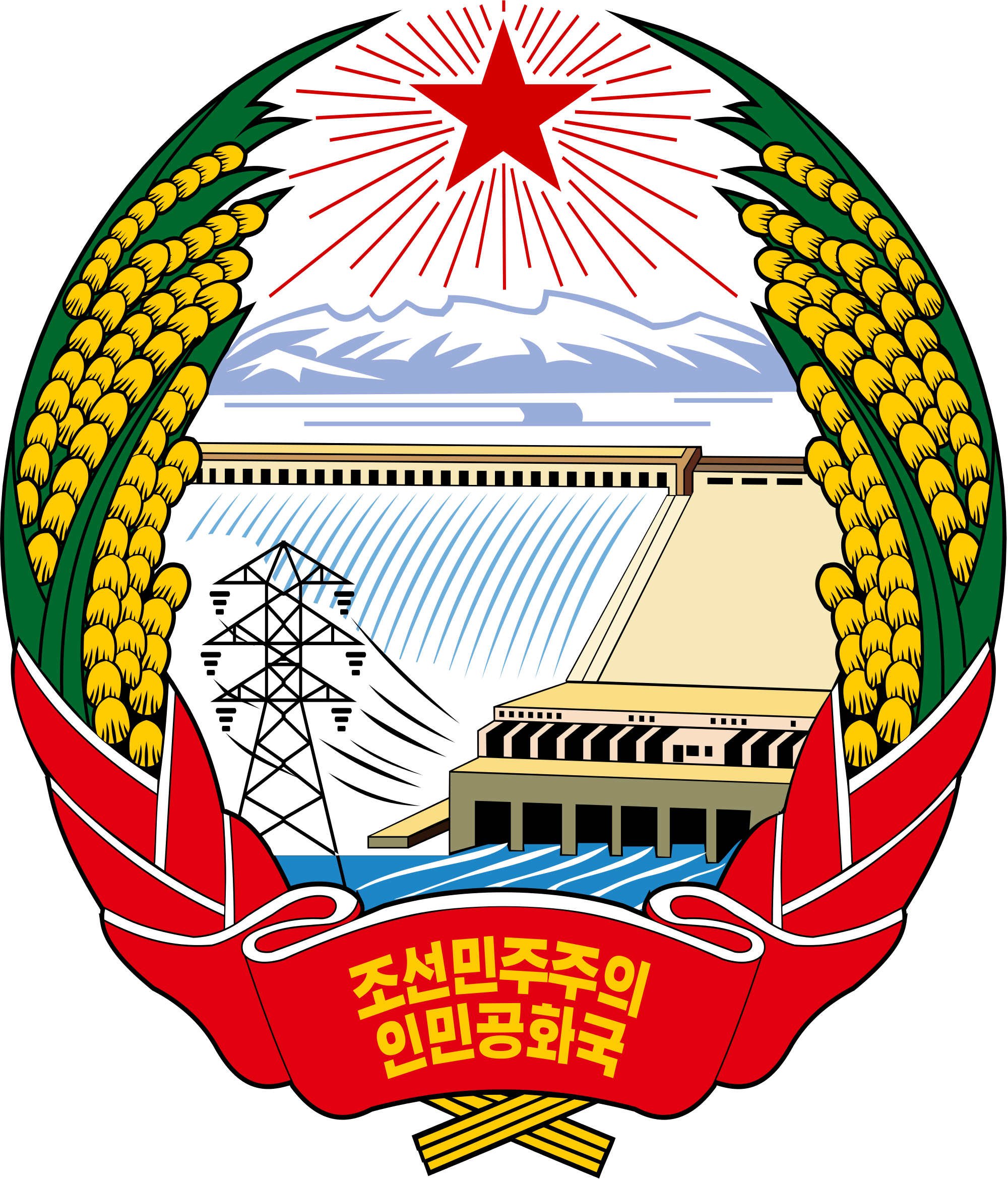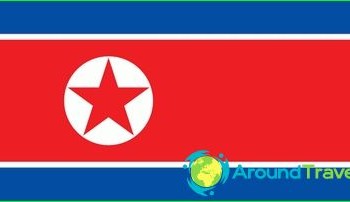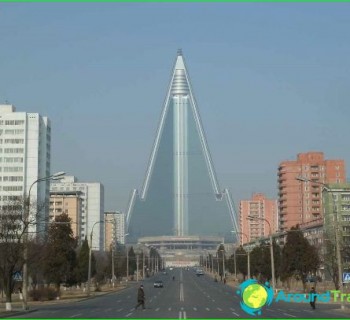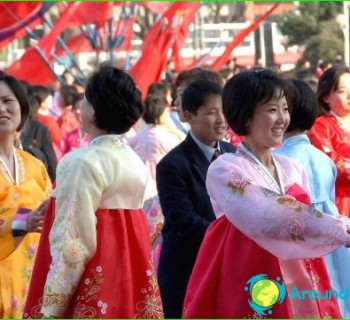Coat of arms of North Korea

Any former resident of the Soviet Union, looking at the coat of arms of North Korea, recognizes familiar outlines, symbols and signs. It is immediately clear who was the best friend of the Democratic People's Republic of Korea, who directed its leaders, directed foreign and domestic policy..
Another point is interesting, the Soviet Union has long sunk into oblivion, the republics scattered, radically changed the official symbols. But the residents of North Korea remain faithful to the chosen course and are in no hurry to make changes to the state symbols..
Description of the coat of arms
Outwardly, the Korean symbol resembles the coats of arms of the union republics. In shape, it is close to an oval, the main elements are in the center, framing a wreath around. The top of the composition is a red star, which naturally has five rays. The main difference between the Korean star and the Soviet ones is that it is larger in size, and is shown shining, rays diverge from it.
Among the important elements of the state emblem of North Korea are:
- quite naturalistic image of a hydroelectric power plant;
- beautiful mountain landscape;
- a wreath of ears of ripe rice;
- scarlet ribbon with the name of the state.
The image of the main and secondary details, the color scheme are spelled out in article 169 of the Constitution of the Democratic People's Republic of Korea, a new version of which was adopted in 2009.
Sacred mountains
The beautiful mountain landscape is depicted on the coat of arms not only as a symbol of the natural wealth of this small Asian state. The indigenous inhabitant in the outlines of the peaks immediately recognizes Paekta, considered the sacred mountain of the revolution.
It is not a figment of the imagination of Koreans and not a myth, but a very real geographical object. Paektusan, which in Korean means «white-headed mountain», is part of the Manchurian-Korean Mountains system and is the highest point on the entire Korean Peninsula. It is considered sacred not only among the indigenous people of the DPRK, but also among their neighbors, the Chinese..
Branches of the economy
The country's coat of arms contains two symbols that reflect the most important sectors of the North Korean economy. On the one hand, it is a powerful hydroelectric power plant that symbolizes the state's independence from the global energy industry. On the other hand, a wreath of ears of ripe rice shows that agriculture has been and remains the leading sector of the local economy. Moreover, of the many plant species grown in the northern part of the Korean Peninsula, rice plays the main role. In a figurative sense, this plant, present on the coat of arms, indicates the wealth of the state..


